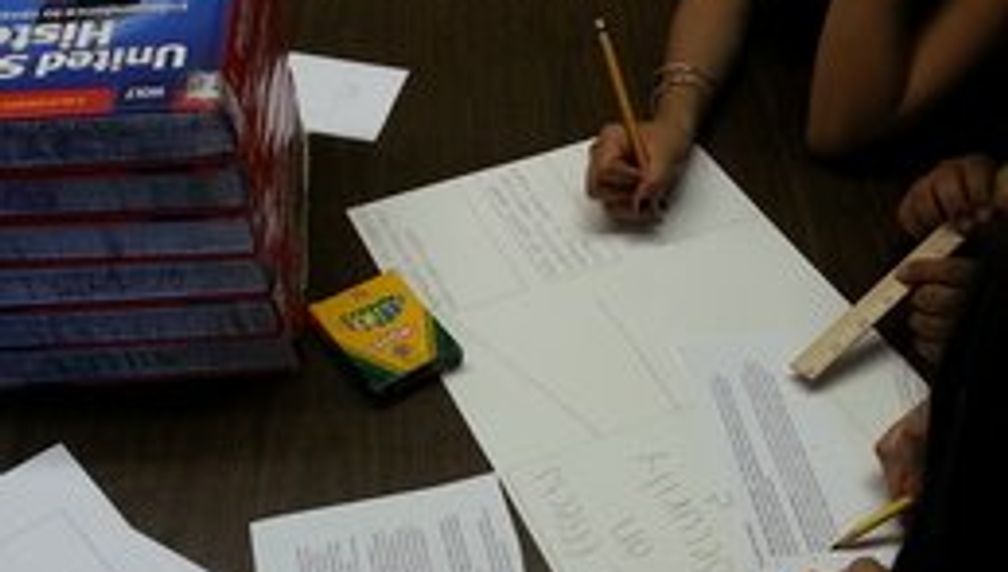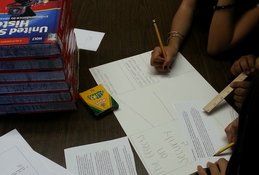ESP Empowering Services Through Partnerships
We are a grassroots organization. We are currently in the state of begininning implementation and have been co-teaching in the classrooms educating students on the effects of the sequester as it relates to their community. Having a pre and post assessment students have shown an increased interest in participating in Service Learning Projects.
Visit this organization’s website to learn more

1 Submitted Idea
- 2013 Grants Challenge
ESP Team Teacher Service Learning Project

ESP Empowering Services Through Partnerships 501(c)(3) created the Team Teacher Service Learning Project (TTSLP). The TTSLP encompasses the idea of reducing the student-teacher ratio by 50% (2 teachers per 30-40 students). By providing an additional teacher, Team Teacher Service Learning Project (TTSLP), to service those classes that are in the greatest need, students are again afforded an opportunity of a quality education and can once again use the teacher as a resource and a facilitator of the actual learning process. III. Our Vision ESP Empowering Services Through Partnerships 501(c)(3) idea will improve Los Angeles and positively impact Education and Social Connectedness, 2 of the 8 indicators. Our vision encompasses partnering to educate our youth on the core content standards while engaging them in Service Learning Projects. IV. Service Learning Service learning is a teaching strategy that combines meaningful service to the community with acquisition of academic learning and skills. The Team Teacher Service Learning Project is a service learning project that encompasses all of the core curriculum areas of English Language Arts, Science, Technology, Engineering, Fine Arts, Math, and the Social Sciences. While students are learning the content areas, they are engaged in the process of relating it to a real life experience that can directly impact their community and streaming it towards Sustainability: using the acquired knowledge and skills to sustain their learning and their community. This learning through service approach not only provides a meaningful approach to learning the content areas but also builds a sense of community, responsibility, awareness, and self-esteem. Overall, students will serve as active participants who are actively engaged within their learning which will directly improve their academic performance and increase academic achievement. By teaching the content through service learning projects, students will be more socially conscious and active toward issues concerning their communities. Consequently, they will become more engaged in the actual learning process while serving their community. Moreover, this experience will drive them to a more successful and meaningful learning path and thus creating productive community-based citizens. Students will be able to use these acquired skills throughout their educational careers as well as throughout life. In addition, values of service, empathy, and community building will be instilled from an early stage and students will be engaged in the process of community sustainability. V. ESP Team Teacher Service Learning Project The TTSLP instructor is a highly qualified credentialed educators. He/she will serve as a co-teacher that enhance the primary teacher's content by engaging students in Service Learning Opportunities. While providing additional support, the primary teacher will be afforded opportunities to prioritize instruction based on student individual needs. Subsequently, students will be able to access the core curriculum and serve their community; thus resulting in academic success—as proven by the decrease in drop-out rates, and increases in proficiency level within the core content, Academic Performance Index, social skills, and community building. Prior to the lessons, both teachers would collaborate on the goals and objectives of the content core standards. Teachers would initiate learning talks engaging students on becoming socially conscious learners. During this process students will be taught the process of the strategic thinking where they conduct needs assessments and goal setting as it relates to students and community members. Subsequently, teachers begin to facilitate service learning projects that would incorporate the identified needs and the core content learning standards. An example would be a Geometry class learning about the area and perimeter formula and taking this information and applying it to a Service Learning gardening project.